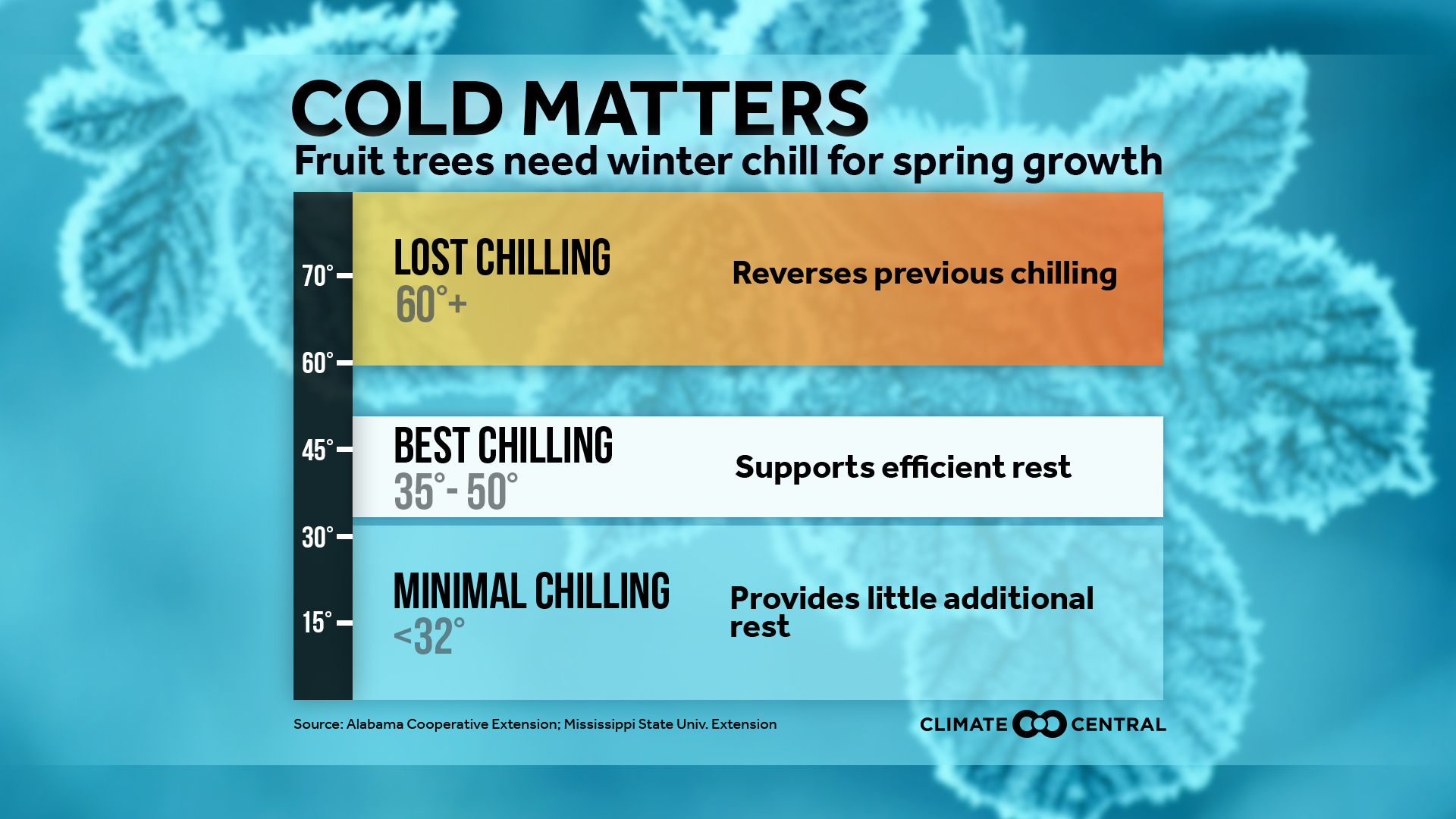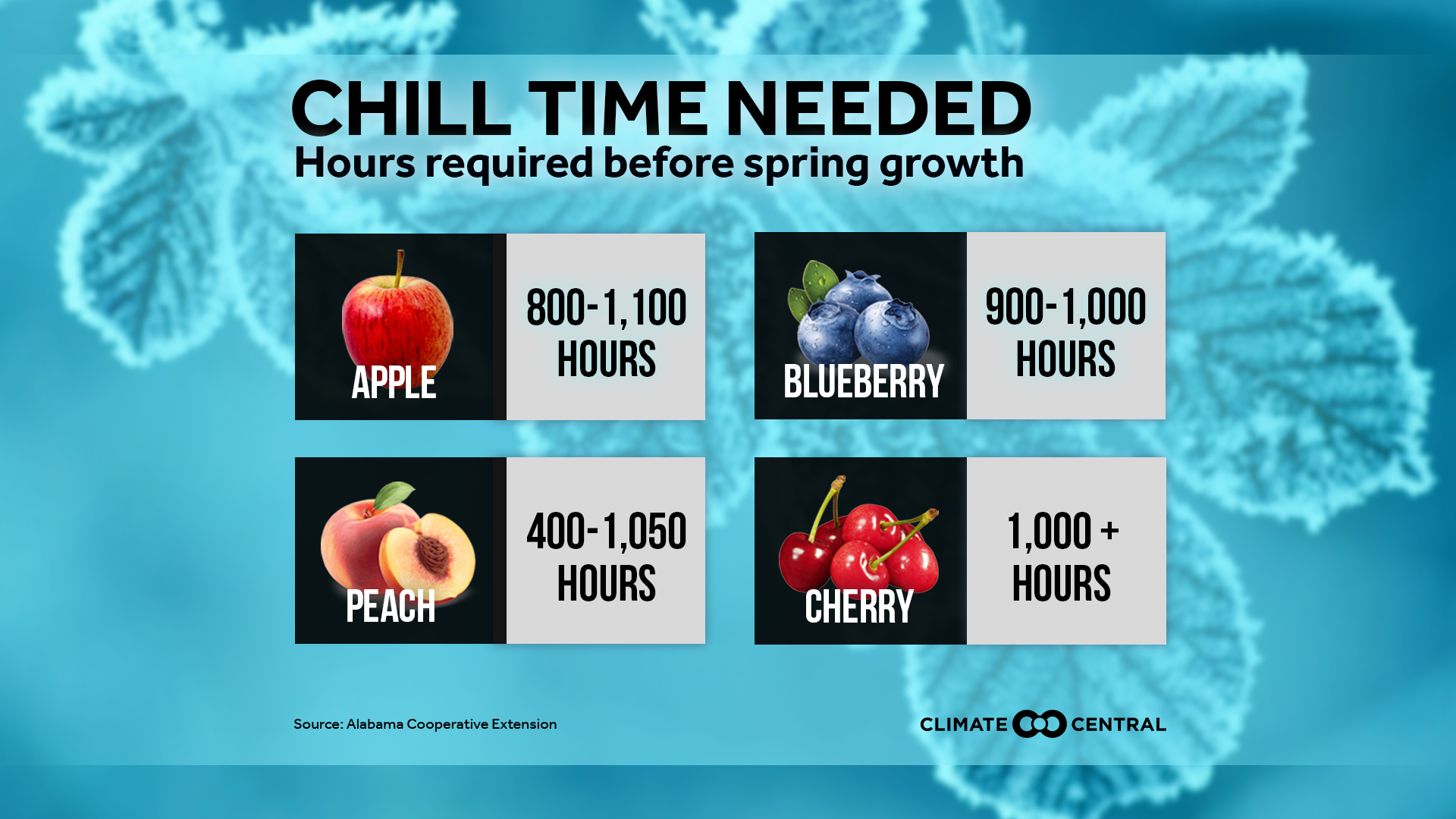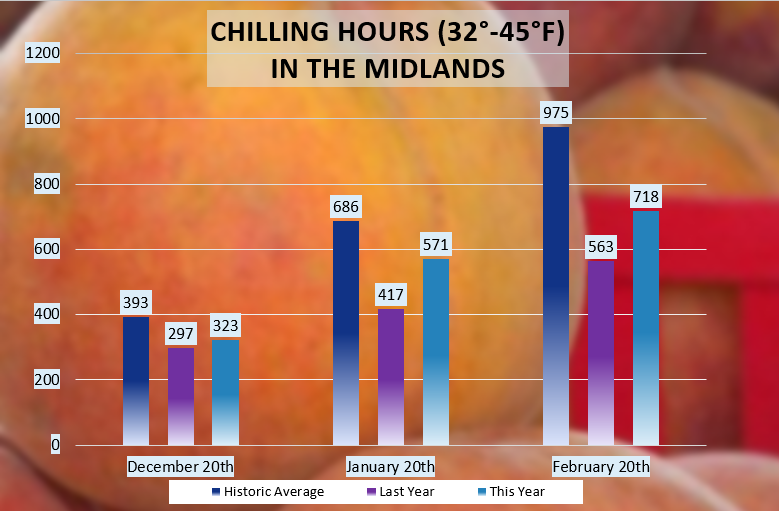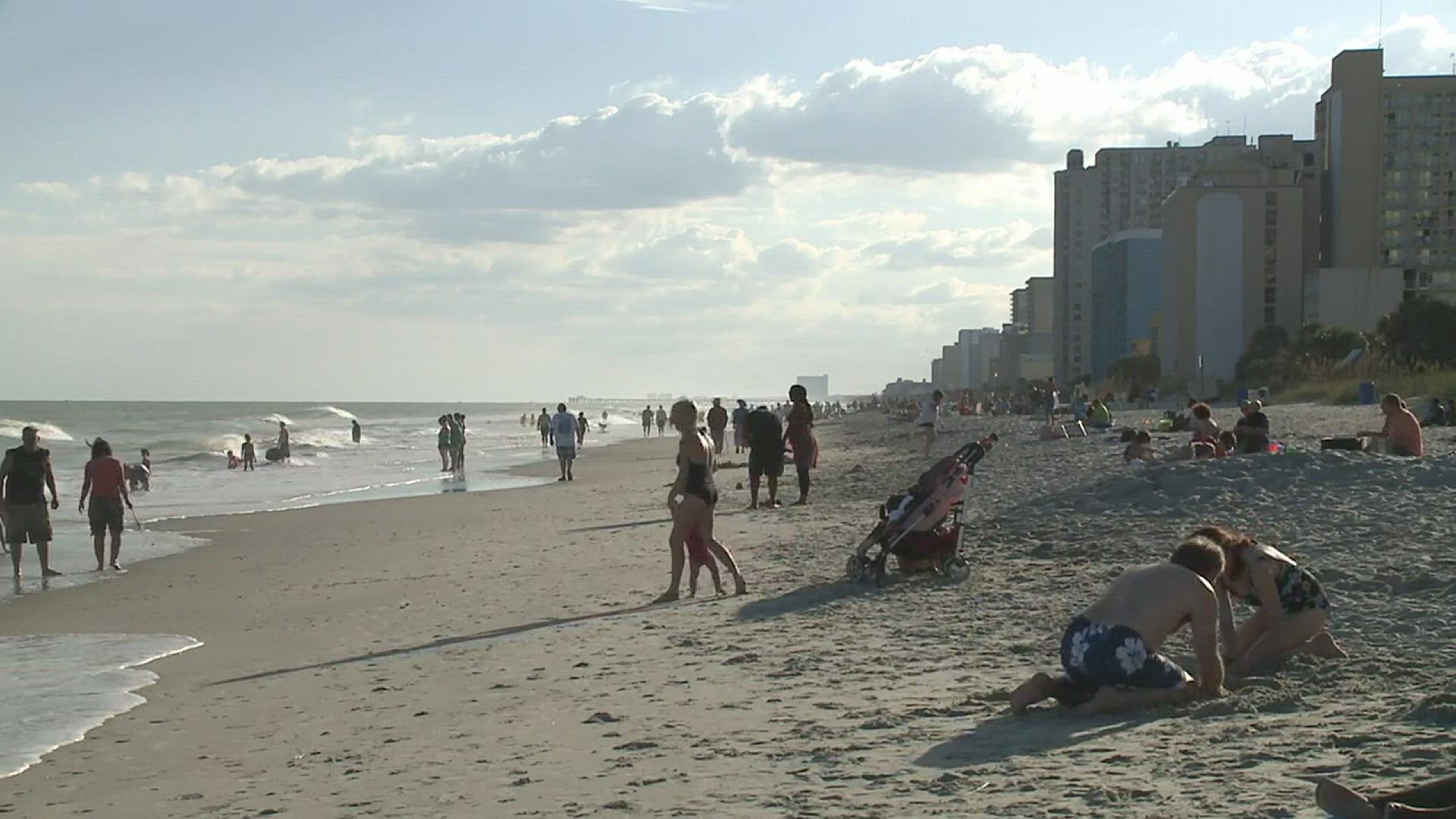Columbia, SC (WLTX) – This warm winter might hurt South Carolina fruit yield as crops need more cold weather.
Fruit bushes and trees require “chilling hours” – a dormant period before the spring growth period. During this time, the plants’ growth regulating chemicals change. Like humans need sleep, plants need their rest too.

The best temperature for their dormant period is 45°F. Temperatures above 70°F for four or more hours offset any chilling that happened in the previous 24-36 hours.
Our normal winter average is 46.7°, just perfect for the varieties of peaches and blueberries that grow in South Carolina. This year we are averaging 50°, not considering the record-breaking days we continue to have.
A lack of chill could potentially delay leafing out and flowering, reduce fruit set and quality, and increase small, misshapen fruit (“buttoning”). This is alarming considering peaches have a $300 million impact in South Carolina.

Depending on the variety, peaches need anywhere from 400-1050 hours of chill time. Titan Farms in Ridge Spring, South Carolina cultivates 50 kinds of peaches and say their requirements range from 600 hours to 1,100 hours.
Blueberries are not so fortunate when it comes to range. In the upper Piedmont, the range is between 1000 to 1200 hours.

Last year was devastating for peach crops and the low amount of chilling hours did not help. So far this winter in the Midlands we have been well below our average as well. The graphic above shows how many chilling hours have accumulated by the end of each month. As of today we are at 718 hours, 257 away from the average. This is sure to hurt the more sensitive peach and blueberry varieties.
Our winters are becoming shorter and milder due to climate change. Spring is arriving earlier which shortens the time needed to achieve the required chilling hours. Trees that have flourished in a particular location will likely have decreasing yields in the future, and the favorable locations for growing will shift northward in a warming climate. This is sure to impact the local economy in the future.

